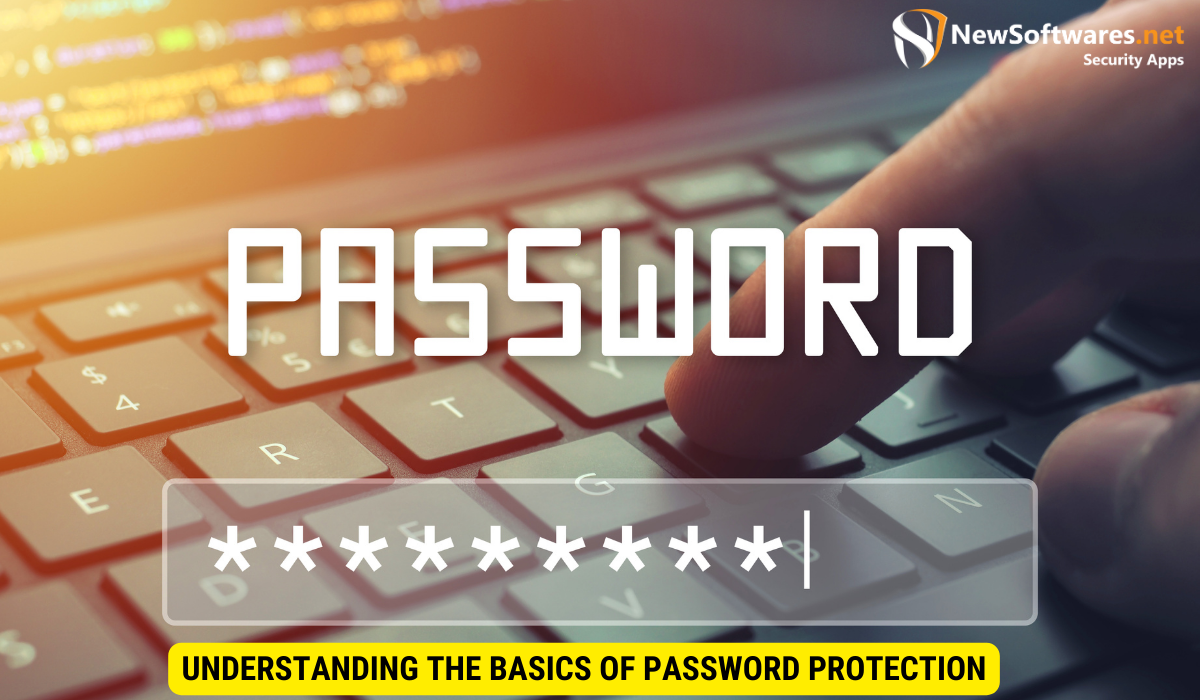Password protection is important because it acts as a barrier between your sensitive information and unauthorized access. By creating strong passwords, practicing secure password management, and implementing modern password protection strategies, you can significantly enhance your online security and safeguard your personal data.
In today’s digital age, password protection has become paramount. With hackers and cybercriminals constantly finding new ways to exploit vulnerabilities, it is crucial for individuals and organizations to prioritize the security of their passwords. Understanding the basics of password protection, the consequences of weak password practices, the science behind strong passwords, modern password protection strategies, and the future of password protection can help ensure the safety of sensitive information. I will explore the significance of password protection and provide practical tips for safeguarding your digital presence.
Understanding the Basics of Password Protection

The Role of Passwords in Digital Security
One of the fundamental aspects of digital security is the use of passwords. Passwords act as a barrier between your sensitive information and unauthorized access. They serve as keys to your online accounts, protecting your personal data, financial details, and confidential communications from falling into the wrong hands.
Despite this crucial role, many individuals underestimate the importance of creating strong passwords and implementing secure password practices. This leads to common misconceptions that can put their online security at risk.
Common Misconceptions about Passwords
It is essential to dispel common misconceptions about passwords to foster a stronger understanding of their significance.
- Myth 1: Length doesn’t matter – Many people believe that shorter passwords are easier to remember. However, longer passwords significantly increase the complexity for hackers attempting to crack them.
- Myth 2: Letters and numbers are enough – Combining letters and numbers in passwords is a positive step, but it is not sufficient. Utilizing a mix of uppercase and lowercase letters, numbers, and special characters adds an additional layer of security.
- Myth 3: Unique passwords are unnecessary – Reusing passwords across multiple accounts is a common but dangerous practice. If a hacker gains access to one of your accounts, they can easily compromise your other accounts as well.
By understanding these misconceptions, you can better develop effective password protection strategies.
The Consequences of Weak Password Practices
The Risks of Password Reuse
One of the most significant risks associated with weak password practices is password reuse. Many individuals use the same password across multiple accounts, leaving them vulnerable to widespread attacks. If a hacker manages to obtain your password from one account, they can gain access to all your other accounts, leading to potential identity theft, financial loss, or compromise of sensitive information.
The Impact of Data Breaches
Data breaches pose a significant threat to password security. When large organizations experience data breaches, hackers can gain access to massive databases filled with user passwords. These stolen passwords are often sold on the dark web or used in brute-force attacks, where hackers systematically guess passwords until they crack them. If your password is part of a data breach, it’s crucial to change it across all your accounts immediately.
The Science Behind Strong Passwords
The Elements of a Secure Password
Creating a secure password involves incorporating various elements that make it difficult to guess or crack.
- Length: A longer password is generally more secure. Aim for at least 12 characters.
- Complexity: Use a combination of uppercase and lowercase letters, numbers, and special characters.
- Avoid common patterns: Avoid using easily guessable patterns, such as sequential numbers or repeating characters.
- Avoid personal information: Steer clear of using easily discoverable information, such as your name, birthdate, or pet’s name, in your passwords.
By incorporating these elements into your passwords, you can significantly enhance your online security.
The Role of Password Complexity and Length
In addition to the elements mentioned above, password complexity and length play crucial roles in creating a strong password.
Complexity refers to the variety of characters used in a password. By utilizing uppercase and lowercase letters, numbers, and special characters, you make it more challenging for hackers to crack your password.
Length, on the other hand, refers to the number of characters in a password. The longer the password, the more permutations it offers, further increasing its security. Aim for a minimum length of 12 characters, and consider using a passphrase instead of a single word to make your password even stronger.
Modern Password Protection Strategies
Two-Factor Authentication and Its Importance
Two-factor authentication (2FA) provides an extra layer of security by requiring users to provide two forms of verification to access their accounts. This typically involves a combination of something the user knows (such as a password) and something the user has (such as a temporary code sent to their smartphone). Implementing this additional step significantly reduces the risk of unauthorized access, even if your password gets compromised.
Password Managers: What They Are and How They Work
Password managers are tools designed to help individuals manage their passwords more securely. These applications store all your passwords in an encrypted vault, which is protected by a master password known only to you. Password managers can generate strong, unique passwords for each of your accounts and automatically fill them in when needed. By centralizing and securing your passwords, password managers simplify the process of maintaining strong passwords without the need to memorize each one.
Future of Password Protection
Biometrics and Passwordless Authentication
The future of password protection lies in biometrics and passwordless authentication. Biometrics involves using unique physical or behavioral traits, such as fingerprints or facial recognition, to verify identity. Passwordless authentication eliminates the need for passwords altogether, relying on advanced technologies like biometrics, hardware tokens, or cryptographic keys to authenticate users securely. These advancements offer convenience without compromising security.
The Role of Artificial Intelligence in Password Protection
Artificial Intelligence (AI) plays a vital role in both password security and cyber attack prevention. AI-powered algorithms can detect suspicious behaviors, flagging potential threats and prompting additional security measures. With AI constantly evolving, it will continue to play a crucial role in protecting passwords and strengthening overall cybersecurity.
Detailed Steps to Enhance Password Protection

To enhance password protection and safeguard your digital presence, follow these steps:
- Choose a strong password
Create a password that is at least 12 characters long and includes a mix of uppercase and lowercase letters, numbers, and special characters. Avoid using easily guessable patterns or personal information.
- Use unique passwords for each account
Avoid password reuse to prevent widespread compromise if one account gets hacked. Utilize a password manager to generate and store unique passwords for each of your accounts.
- Enable two-factor authentication
Activate two-factor authentication whenever possible. This adds an extra layer of protection by requiring an additional verification step beyond just a password.
- Regularly update your passwords
Change your passwords periodically, especially if there has been a data breach or you suspect unauthorized access. Keeping your passwords up to date is essential for maintaining strong security.
- Stay vigilant for phishing attempts
Be cautious of phishing emails, messages, or websites that attempt to trick you into revealing your passwords. Verify the authenticity of any requests before providing sensitive information.
Key Takeaways
- Passwords play a crucial role in digital security, serving as keys that protect online accounts and sensitive information.
- Weak password practices, such as password reuse and using easily guessable passwords, can lead to identity theft, financial loss, and compromise of sensitive data.
- Creating strong passwords involves incorporating elements like length, complexity, and avoiding common patterns or personal information.
- Modern password protection strategies, such as two-factor authentication and password managers, provide additional layers of security.
- The future of password protection lies in biometrics, passwordless authentication, and the use of artificial intelligence in cybersecurity.
FAQs
Q: How can I create a strong password?
A: Create a password that is at least 12 characters long and includes a mix of uppercase and lowercase letters, numbers, and special characters. Avoid using easily guessable patterns or personal information.
Q: Is it necessary to use unique passwords for each account?
A: Yes, using unique passwords for each account is essential to prevent widespread compromise if one account gets hacked. Utilize a password manager to generate and store unique passwords for all your accounts.
Q: What is two-factor authentication and why is it important?
A: Two-factor authentication adds an extra layer of security by requiring users to provide two forms of verification to access their accounts. This significantly reduces the risk of unauthorized access, even if your password gets compromised.
Q: Will biometrics eliminate the need for passwords?
A: Biometrics offers a more secure and convenient alternative to traditional passwords. While it may reduce the reliance on passwords, it is unlikely to eliminate them entirely, as a multi-factor approach combining biometrics with passwords or other authentication factors is often considered the most secure.
Q: How can artificial intelligence enhance password protection?
A: Artificial intelligence plays a vital role in detecting suspicious behaviors, flagging potential threats, and enhancing overall cybersecurity. AI-powered algorithms can provide real-time insights and prompt additional security measures to protect passwords and prevent cyber attacks.
Conclusion
As technology continues to advance, the importance of password protection cannot be overstated. It is crucial for individuals and organizations to prioritize the security of their passwords to safeguard their digital presence. By understanding the basics of password protection, the consequences of weak password practices, the science behind strong passwords, modern password protection strategies, and the future of password protection, you can take proactive steps to ensure the safety of your sensitive information and maintain a strong defense against hackers and cybercriminals.
